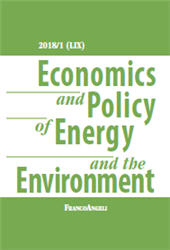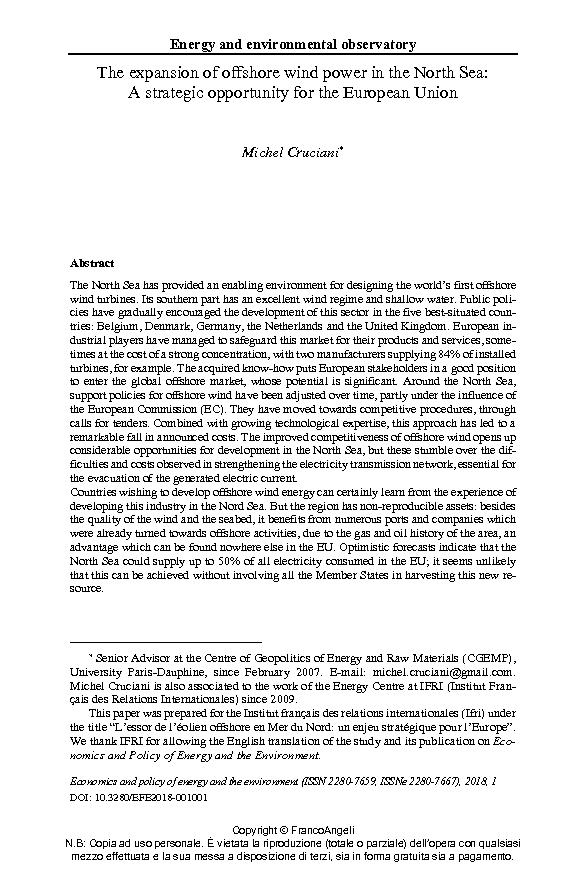The expansion of offshore wind power in the North Sea : a strategic opportunity for the European Union
5-28 p.
The North Sea has provided an enabling environment for designing the world's first offshore wind turbines. Its southern part has an excellent wind regime and shallow water. Public policies have gradually encouraged the development of this sector in the five best-situated countries: Belgium, Denmark, Germany, the Netherlands and the United Kingdom. European industrial players have managed to safeguard this market for their products and services, sometimes at the cost of a strong concentration, with two manufacturers supplying 84% of installed turbines, for example. The acquired know-how puts European stakeholders in a good position to enter the global offshore market, whose potential is significant. Around the North Sea, support policies for offshore wind have been adjusted over time, partly under the influence of the European Commission (EC). They have moved towards competitive procedures, through calls for tenders.
Combined with growing technological expertise, this approach has led to a remarkable fall in announced costs. The improved competitiveness of offshore wind opens up considerable opportunities for development in the North Sea, but these stumble over the difficulties and costs observed in strengthening the electricity trans-mission network, essential for the evacuation of the generated electric current. Countries wishing to develop offshore wind energy can certainly learn from the experience of developing this industry in the Nord Sea.
But the region has non-reproducible assets: besides the quality of the wind and the seabed, it benefits from numerous ports and companies which were already turned towards offshore activities, due to the gas and oil history of the area, an advantage which can be found nowhere else in the EU. Optimistic forecasts indicate that the North Sea could supply up to 50% of all electricity consumed in the EU; it seems unlikely that this can be achieved without involving all the Member States in harvesting this new resource. [Publisher's text].
-
Articoli dello stesso fascicolo (disponibili singolarmente)
-
-
Informazioni
Codice DOI: 10.3280/EFE2018-001001
ISSN: 2280-7667
MATERIE
PAROLE CHIAVE
- Offshore wind, electricity, market power, Germany, oligopolistic market



